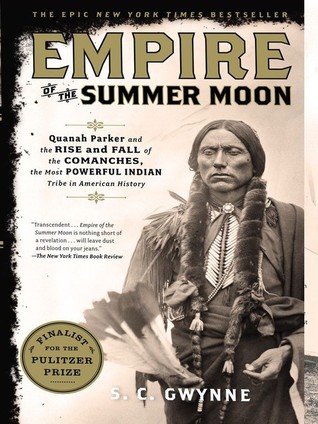THERE IS HISTORY that is based on hard, documented fact; history that is colored with rumor, speculation, or falsehood; and history that exists in what might be termed the hinterlands of the imagination. The latter describes many of the nineteenth-century accounts of the captivity of Cynthia Ann Parker, the legendary “White Squaw” who chose the red man over the white man and a life of unwashed savagery over the comforts of “civilization.” Most are informed by a sort of bewildered disbelief that anyone, but especially a woman, could possibly want to do that. The
Welcome back. Just a moment while we sign you in to your Goodreads account.


